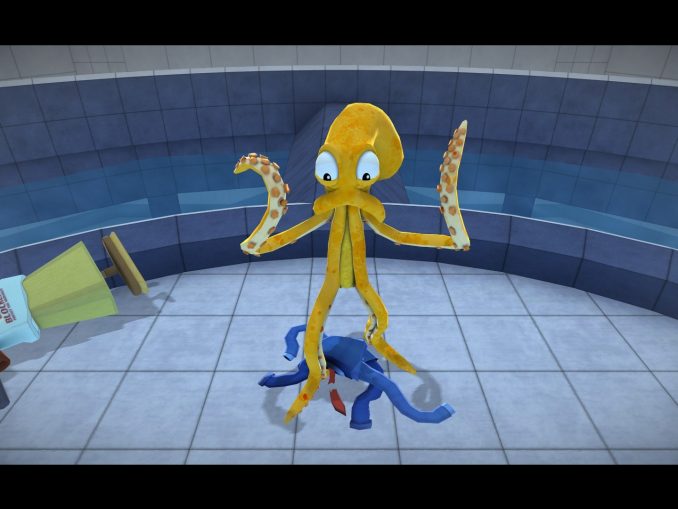

Once you’ve beaten the game, the lock never changes but you always have the key. The joy of the levels come from figuring out solutions to your issue. On a second play-through, such as mine, they can feel a bit “empty”. Octodad has a variety of different levels that feel interesting to explore such as Octodad’s back-yard, an aquarium, and a fishing boat. Because of the style, no two play-throughs feel the same, but your enjoyment of said play-through is rooted in whether or not you enjoy mastering games. However when you get used to it, it is fluid and fun as you get into all sorts of shenanigans. I, personally, have mixed feelings about the control style, it isn’t accessible to newcomers at all. The way controls feel are very subjective in games, but the way Octodad is designed means if you don’t enjoy them, you won’t enjoy the game.

You control each limb separately, which makes simple actions like walking around or mowing the lawn a bit of a chore, but not in a way that makes them uninteresting or not fun. In Octodad, going about your life as an octopus is not very easy. It’s not your typical story in a game, but it works in so many different ways. You’re pretending to be a human father while running from a chef who’s a war veteran. Let’s start with addressing the concept and controls. I’ll be taking a look at the Nintendo Switch version, provided to me by Young Horses. Octodad, as I’ll refer to it, is very hard to explain properly, however, I shall do my best to do so for this review. Originally released in 2014 by Young Horses, the game is actually a sequel to “Octodad”, which was developed in 2011 before the official forming of Young Horses. Octodad: Dadliest Catch is a physics based adventure where you control an octopus masquerading as a human father.


 0 kommentar(er)
0 kommentar(er)
